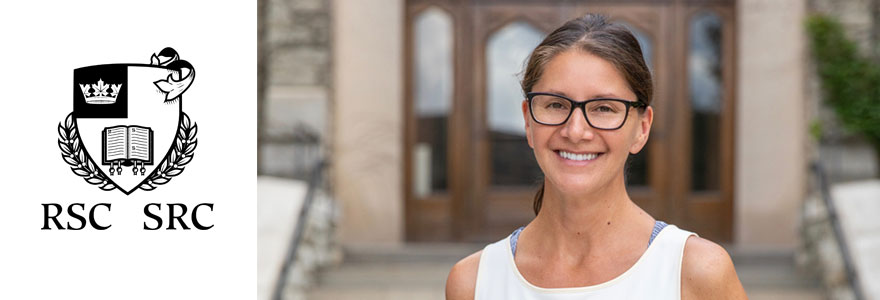News and Updates
Contact
Faculty of Social Science
Social Science Centre
Room 9438
Western University
T. 519-661-2053
F. 519-661-3868
E. social-science@uwo.ca
Janice Forsyth named to College of New Scholars, Artists and Scientists
September 18, 2019
Janice Forsyth has been named a member of the Royal Society of Canada’s College of New Scholars, Artists and Scientists.
Forsyth is an associate professor of Sociology and Director of the Indigenous Studies program. Her research focuses on the way sports have been used as tools for colonization and how Indigenous people have used those same activities for cultural regeneration and survival.
In May 2020, Forsyth’s book Reclaiming Tom Longboat, is scheduled to be released by the University of Regina Press.
The book looks at the history of the Tom Longboat Awards, which Forsyth uses as a lens through which to see Indigenous-settler relations in Canada.
“It’s complicates our understanding of what Indigenous people are trying to do with sport,” said Forsyth. “It’s not just about getting healthy and winning medals. It’s about reconnecting with the land and rebuilding their nations by reimagining who they are as Indigenous people.”
Tom Longboat, a member of the Onondaga Nation from the Six Nations of the Grand River, was the dominant long-distance runner at the turn of the 20th century.
The Tom Longboat Awards were created in 1951 to recognize the achievements of Indigenous athletes. The awards were founded by Jan Eisenhardt, a Danish immigrant to Canada, who worked with the Department of Indian Affairs.
In 1972, the National Indian Brotherhood (later the Assembly of First Nations) and the Sports Federation of Canada took on responsibility for the awards. Since 1998, the Aboriginal Sports Circle has been responsible for administering the program.
When the award was founded the focus was to use the awards, and athletics, to encourage Indigenous peoples to assimilate into Canadian society, Forsyth said. “As far as I know it is the only sport award that the state has ever created. And it was developed to advance their policies at Indian Affairs.”
In the time since its foundation, the custodian organizations have adjusted how they tried to use the awards, Forsyth said. Now, the awards are used to recognize Indigenous athletes, as a form of self-determination.
“National organizations like the Aboriginal Sport Circle are using sport to help create and advance capacity development at the community level, through coaching, physical education and wellness programs. They are doing it from an Indigenous point of view with a focus on self-determination in sport,” said Forsyth. “There is no one approach to sport in Indigenous communities because every community is different in terms of their history, their culture, and their aspirations for how they want to live. Sport helps them to achieve their own objectives for the future, so they are doing sport in a way that makes sense to them.”
Forsyth was interested in the awards, in part, because she received the regional award for Ontario in 2002, and because she thought it would be “an interesting challenge to tell the story of Indigenous-settler relations through the perspective of a sport award.”
Those named to the College represent the emerging generation of scholarly, scientific and artistic leadership in Canada.
“I’m incredibly honoured, because when you take a look at all of the people who are doing incredible things – at our institution and throughout Canada – it’s pretty amazing to think that my nomination was selected,” said Forsyth. “It’s an honour to be standing beside the other members in the 2019 class."
Together, the members of the College will address issues of particular concern to new scholars, artists and scientists, for the advancement of understanding and the benefit of society, taking advantage of the interdisciplinary approaches fostered by the establishment of the College.
The College of New Scholars, Artists and Scientists, created in 2014, is Canada’s first national system of multidisciplinary recognition for the emerging generation of Canadian intellectual leadership. Up to 100 Members may be elected each year and membership is for seven years.
Other Faculty members previously named to the College include:
- William Turkel, History (2018)
- Laura Huey, Sociology (2017)
- Bipasha Baruah, Women’s Studies and Feminist Research (2015)
- Joanna Quinn, Political Science (2015)
- Chantelle Richmond, Geography (2015)
- Daniel Ansari, Psychology (2014)
- Isaac Luginaah, Geography (2014)

